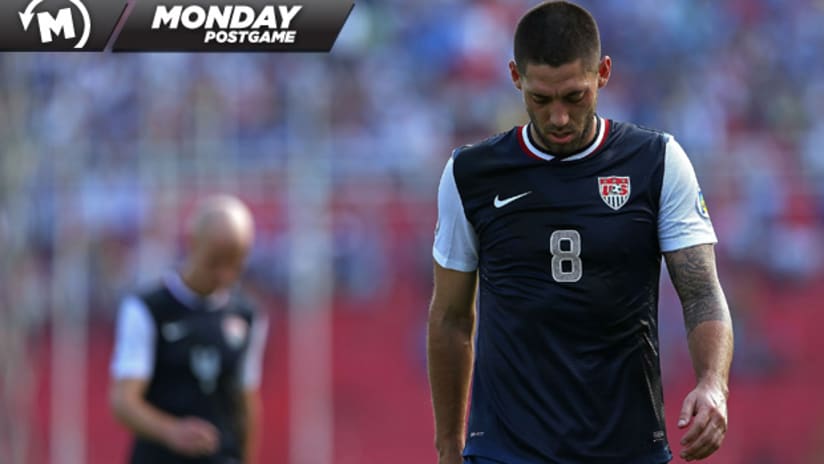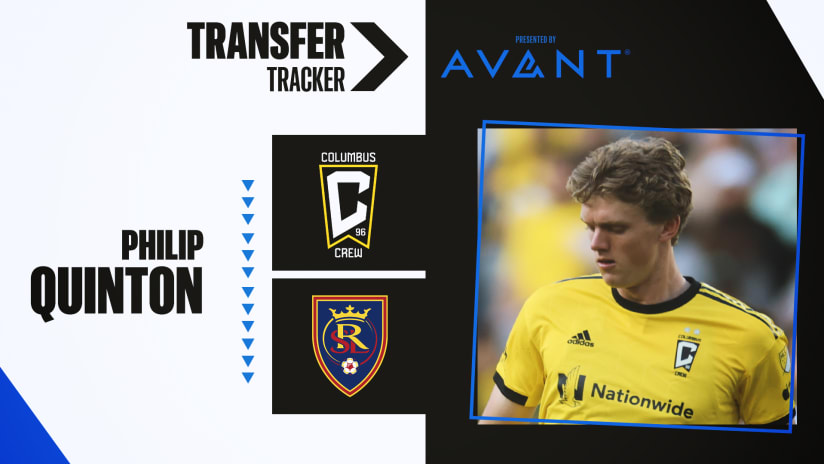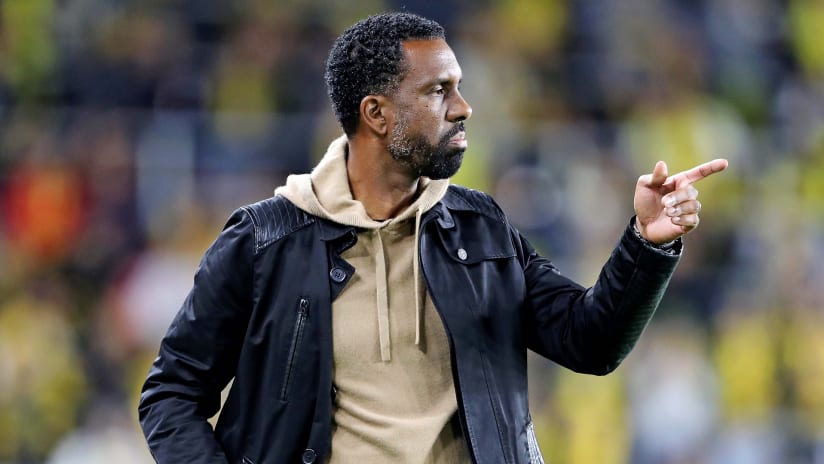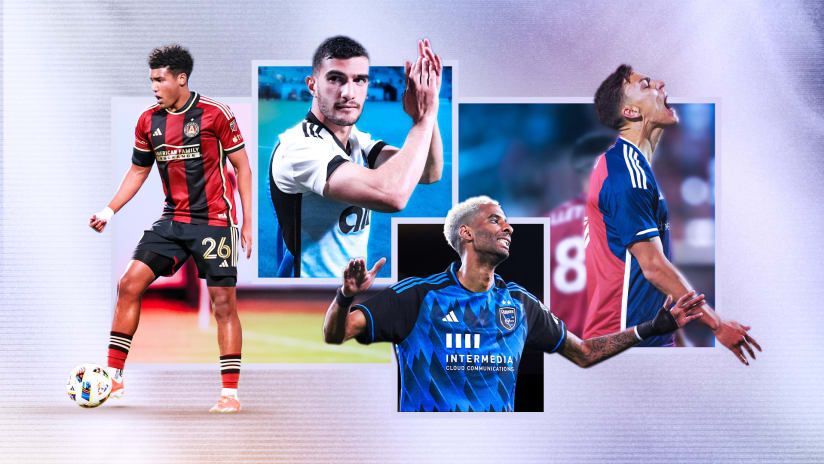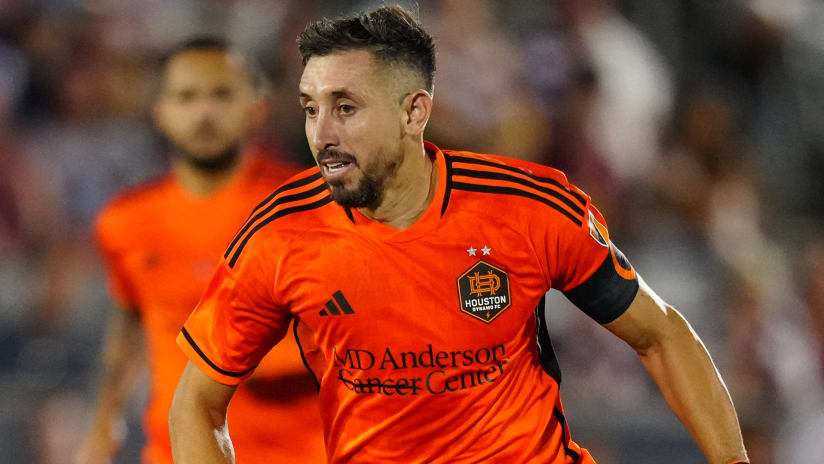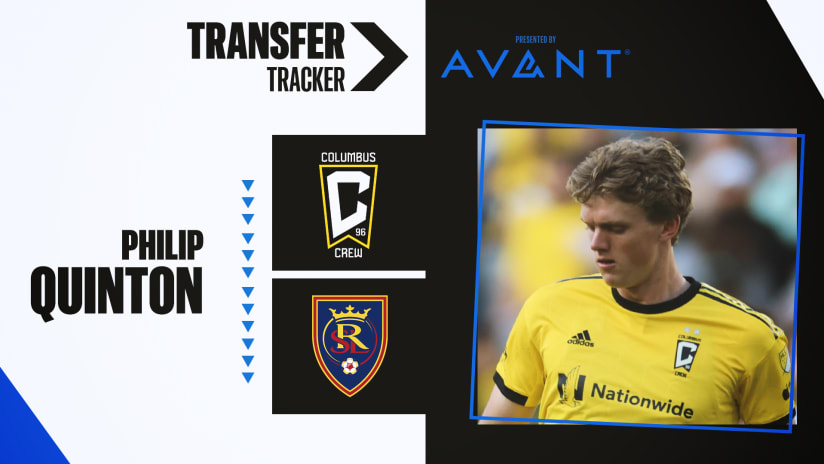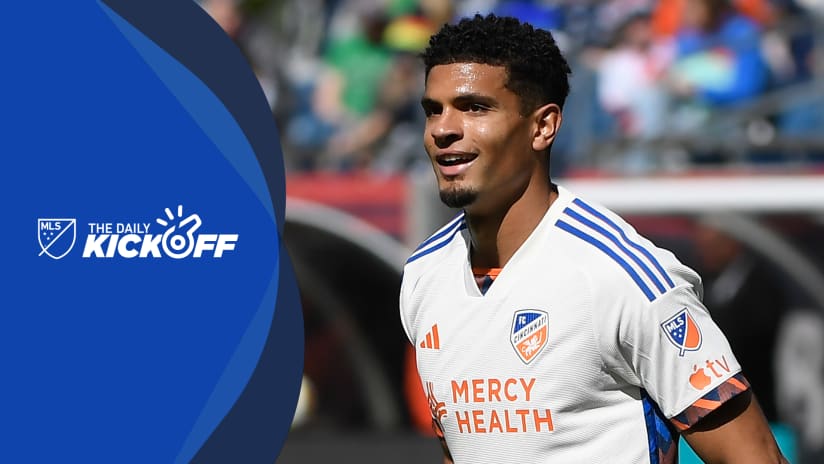They say a rising tide lifts all boats, but when it comes to Major League Soccer’s influence in CONCACAF, it’s possible that some boats have risen higher than others.
At least that’s what some US fans were suggesting in the wake of Matchday 1 of the World Cup qualifying Hexagonal, when MLS players fueled three dramatic and mostly surprising results.
Are the performances of Jamaica, Honduras and Panama a sign that the US domestic league is benefiting its CONCACAF rivals more than the US national team?
Let’s look at some evidence.
Reggae at Azteca
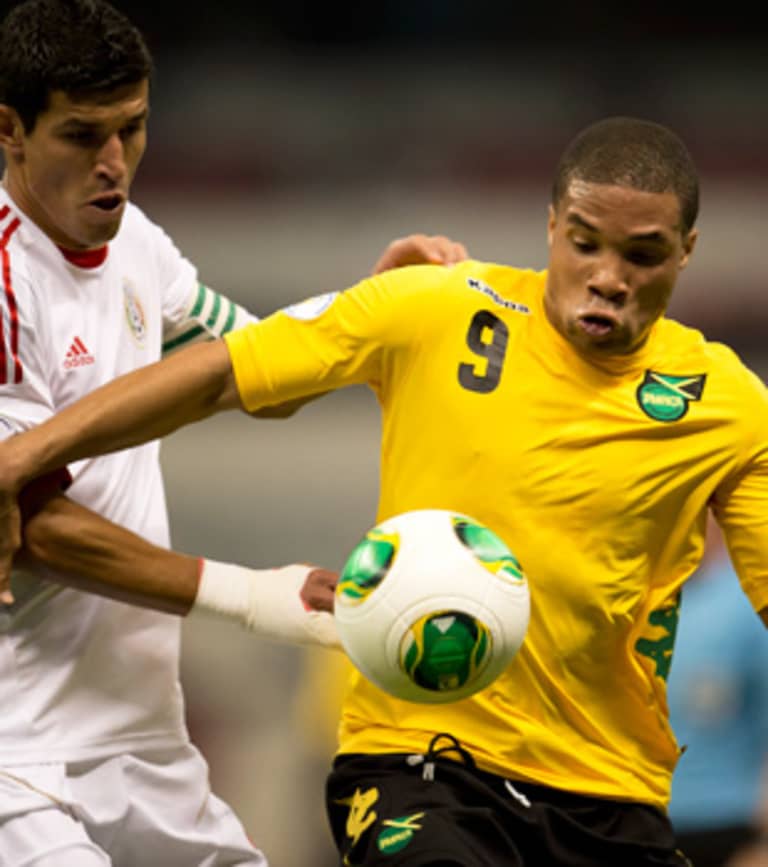
There was a lot of talk last week about the Jamaican Football Federation’s recent trip to England in search of players with Jamaican roots, and rightfully so: One of those players, Reading’s Jobi McAnuff, played an influential role in the Reggae Boyz’ stunning 0-0 draw in Mexico City in their Hex opener last Wednesday.
WATCH: Go inside the Hex with KICKTV
But that result, which ended a 19-game winning streak for El Tri at Estadio Azteca, would not have happened without a handful of outstanding saves from Portland Timbers goalkeeper Donovan Ricketts.
Also instrumental in the historic draw were Portland’s Ryan Johnson, who put in a solid shift as Jamaica’s lone striker (despite flubbing a breakaway, and missing a couple of other chances), and Houston’s Jermaine Taylor, who patrolled the Reggae Boyz backline.
Dynamo midfielder Je-Vaughn Watson made the Jamaica bench, along with winger Dane Richards, a former Red Bull who finished last season with Vancouver before transferring to Burnley of the English Championship in 2013.
All told, Jamaica has placed 34 players in MLS since the league’s inception, development that has undoubtedly helped the JFF program.
Mexico, for their part, did not feature any MLS players on their gameday roster, but they have sent more than 60 players to the US league since 1996, and that can’t hurt their national team pool, even if El Tri are doing just fine on their own.
Ticos, Canaleros
Panama began their rise in CONCACAF in 2005, when they finished runners-up in the Gold Cup. Fueling their next leap, in 2010, was the hiring of Julio Dely Valdés, an experienced international, and his brother Jorge, a former MLS star, as coach and assistant coach.
READ: Jamaica makes history, Saborío leads Ticos
Last Wednesday, with
ex-Philadelphia midfielder Gabriel Gómez
,
FC Dallas striker Blas Pérez
and former
FCD defender Carlos Rodríguez
in the starting lineup, Panama jumped out to an eyebrow-raising 2-0 lead on traditional regional powers Costa Rica.
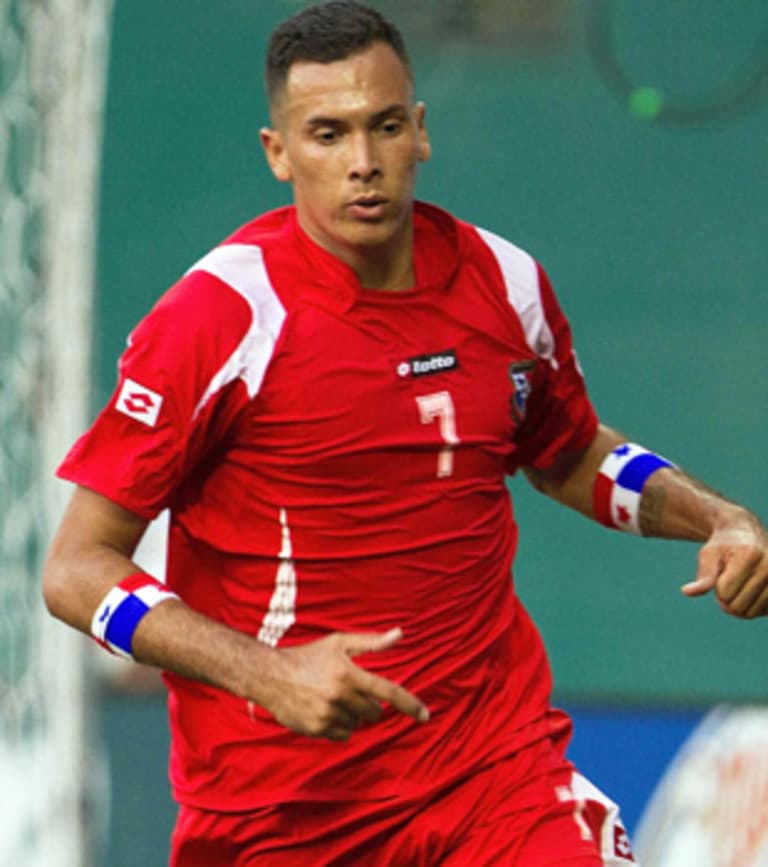
The Ticos came back to tie the game 2-2, and their rally began with a goal from Real Salt Lake’s Álvaro Saborío just before halftime.
Costa Rica also started Michael Umaña, a defender who played for the LA Galaxy (2005) and Chivas USA (2010-11), and had current MLSers Jairo Arrieta (Columbus), Roy Miller (New York) and Rodney Wallace (Portland) on their bench, along with Douglas Sequeira, a defender who played for Chivas USA and RSL in 2005 and '06.
Honduran Pipeline
Last season, there were eight Hondurans in MLS. Six of those eight were named to the Honduras roster for the USMNT's opening qualifier last Wednesday, which, as you know, ended in a 2-1 win for Los Catrachos.
In its 17-year history, MLS has featured 18 Honduran players. That total may seem low, but it is sure to increase, and the Hondurans who’ve joined the league have been a disproportionately successful group, including two MLS MVPs in Alex Pineda Chacón and Amado Guevara.
Of the 11 starters against the US on Wednesday, four were current MLSers (San Jose's Víctor Bernárdez, Houston's Boniek García, New England's Jerry Bengtson and Seattle's Mario Martínez) and one — midfield star Roger Espinoza — is a recent alum, having departed Kansas City for Wigan of the Premier League last month.
There was also D.C. United academy product Andy Najar, now with Anderlecht, who was named to the roster but didn’t play due to injury, and former Houston striker Carlo Costly, who repeatedly torched Bundesliga starter Timothy Chandler.
Yes, MLS has been good for Hondurans, and vice versa.
(MLS obviously impacts CONCACAF nations not involved in this year’s Hex, too. Canada, to name one, used six MLSers in a lineup that tied a US B-team in a friendly on Jan. 29, and the Canucks’ Under-20 coach recently called in eight players with MLS connections for the CONCACAF U-20 Championship.)
Yanks at Home and Abroad
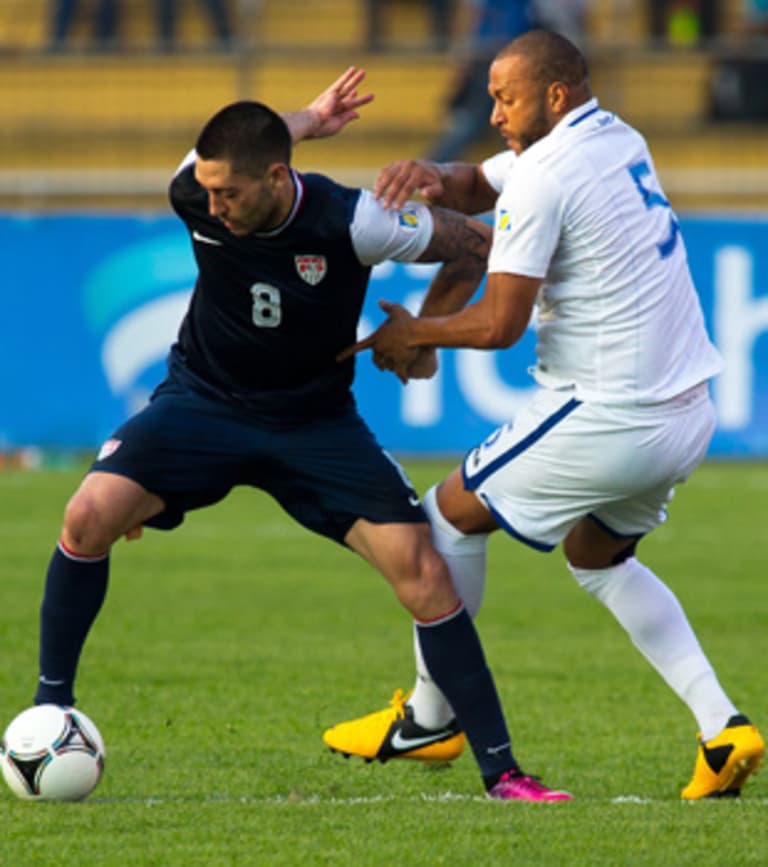
But as positive as the league has been for the entire region, it’s tough to make the case that any nation has benefitted more than the US.
Of the 24 players Jurgen Klinsmann called for Wednesday’s match, 19 cut their teeth in MLS. Players such as Clint Dempsey, Carlos Bocanegra, and Maurice Edu wouldn’t be where they are today without the US domestic league. That goes double for Seattle Sounders forward Eddie Johnson.
Since its inception, the league has been a place for American players to grow and prove their class — to observers both abroad and at US Soccer.
And of course, LA Galaxy star Landon Donovan, who was conspicuous by his absence on Wednesday, and who is arguably (or is it indisputably?) the best American player ever, is an MLS man through and through.
Regional Recipe
Whatever regional impact the league has made — and it clearly has made a big one — can only be good for the US national team in the long run.
More competitive neighbors should make the US better, even if they make — because they make — qualifying for the World Cup harder.
MLS has imparted dramatic near-term gains to several CONCACAF nations, and helped narrow the gaps in the region, but the league isn’t benefiting US rivals to the detriment of the US.
MLS is simply adding another flavor to the regional stew, making it a little spicier — and a lot more nourishing.

